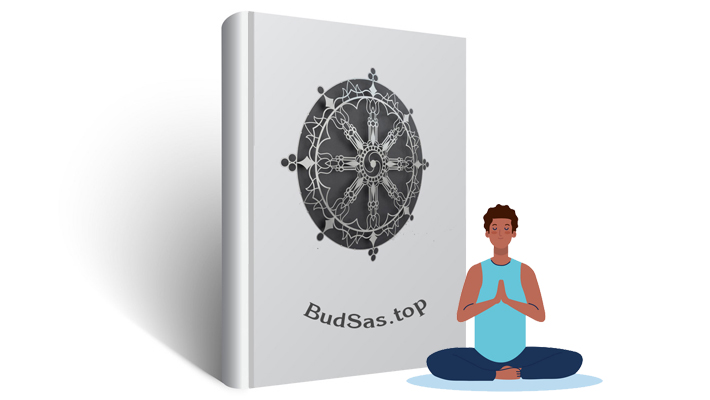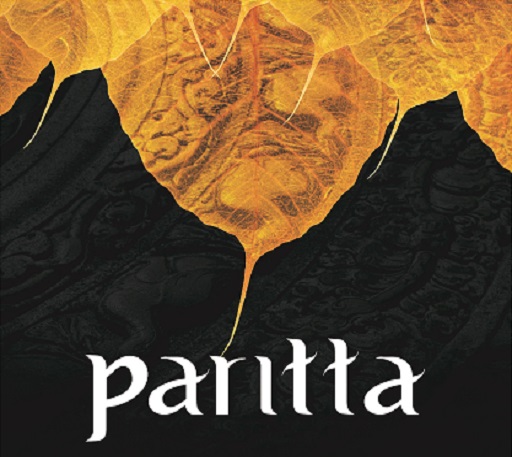No. 255.
SUKA-JĀTAKA.
“What time the bird,” etc.–This story the Master told while dwelling at Jetavana, about a Brother who died of over-eating.
[2921 On his death, the brethren assembled in the Hall of Truth, and discussed his demerits on this fashion: “Friend, Brother So-and-so was ignorant how much he could safely eat. So he ate more than he could digest, and died in consequence.” The Master entered, and asked what they talked of now as they sat together; and they told him. “Brethren,” he said, “this is not the first time our friend died of surfeit; the same has happened before.” Then he told them an old-world tale.
_____________________________
Once on a time, when king Brahmadatta reigned over Benares, the Bodhisatta became a Parrot, and dwelt in the Himalaya region. He was king over several thousands of his kind, who lived on the seaward side of the Himalayas; and one son was his. When his son grew up to be strong, the father Parrot’s eyes became weak. The truth is, that parrots fly with great swiftness; wherefore when they be old it is the eye that weakens first. His son kept his parents in the nest, and would bring them food to feed them.
It happened one day that our young Parrot went to the place where he found his food, and alighted upon a mountain-top. Thence he looked over the ocean, and beheld an island, in which was a mango grove full of sweet golden fruit. So next day, at the time of the fetching of food, he rose in the air and flew to this grove of mangoes, where he sucked the mango juice,
p. 204
and took of the fruit, and bore it home to his mother and father. As the Bodhisatta ate of it, he knew the taste.
“My son,” said he, “this is a mango of such and such an island,” naming it.
“Even so, father!” replied the young Parrot.
“Parrots that go thither, my son, have not length of life,” he said. “Go not to that island again!”–But the son obeyed him not, and went yet again.
Then one day it befel that he went as usual, and drank much of the mango juice. With a mango in his beak [293] he was passing over the ocean, when he grew worn out with so long carrying, and sleep mastered him; sleeping he flew on, and the fruit which he carried fell from out of his beak. And by degrees he left his path, and sinking down skimmed the surface of the water, till in the end he fell in. And then a fish caught and devoured him. ‘When he should have returned, he returned not, and the Bodhisatta knew that he must have fallen into the water. Then his parents, receiving no sustenance, pined away and died.
_____________________________
The Master, having told this tale, in his perfect wisdom, uttered the following stanzas:
“What time the bird without excess did eat,
He found the way, and brought his mother meat.
“But once he ate too much, forgot the mean,
He fell; and afterward was no more seen.
“So be not greedy; modest be in all.
To spare is safe; greed goeth before a fall 1.”
p. 205
When the Master had ended this discourse, he declared the Truths (at the conclusion of which many persons entered the First Path, or the Second, or Third, or Fourth), and identified the Birth: “At that time, the brother who has over-eaten was the young Parrot, and the king of the Parrots was I myself.”
Footnotes
204:1 The Scholiast adds the following lines:
“Be moderate in eating wet or dry,
And this thy hunger’s need will satisfy.
Who eats with care, whose belly is not great,
Will be a holy hermit soon or late.
[291] Four or five mouthfuls,–then a drink is right;
Enough for any earnest eremite.
A careful moderate eater has small pain,
Slowly grows old, lives twice as long again.”
And these:
“When sons bring meat to fathers in the wood,
Like ointment to the eye, ’tis very good.
Thus for bare life, with weariness forspent,
He nourished him upon such nourishment.”

![[PDF] The book of the Discipline – Vinayapiṭaka – The full 6 Volumes](https://en.namo84000.org/wp-content/uploads/2023/12/The-Book-of-the-Discipline-Vinaya-Pitaka.jpg)


![[En] Guide to Tipitaka](https://en.namo84000.org/wp-content/uploads/2021/10/Kinh-Phat-Quan-trong-2.jpg)